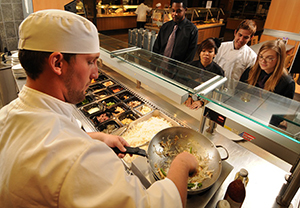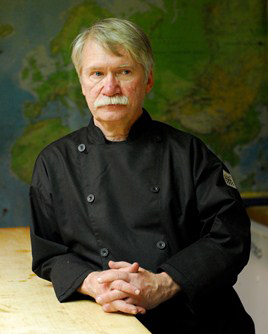Guest Speaker: Students Today
Although some instructors might feel threatened or intimidated by having to adapt to accommodate the needs of an ever-diversifying student body, consider that change can be good, benefit the student and ultimately make teaching and managing the classroom a lot easier.
By Bradley J. Ware, PhD, and C. Lévesque Ware, PhD
The student landscape today is drastically different than in the past. Classes are made up of an increased number of students who have new and unique needs and a variety of views and opinions concerning their role in the classroom and that of the instructor.
More and more students are culturally diverse, have learning disabilities, live with visual and hearing impairments, and require more personal attention. Educators who adapt their teaching methods and strategies to best accommodate these diverse groups will have the greatest degree of success in motivating students to learn.
Culturally Diverse Students
There are many outside forces that can influence the overall success of foreign and multicultural students. Behaviors that are culturally linked such as a lack of eye contact, non-participatory behavior, a disregard for personal space, or the failure to respond to questions might be misconstrued by instructors as poor preparation or a lack of interest. Students who are first-generation college students might experience the pressure to succeed in an environment with which they are not familiar. They may at times feel like outcasts and honestly believe that they do not belong or fit into the college scheme of things. Students who have English as a second language also have the added burden of limited comprehension and might find it difficult to adjust to the academic rigor that college demands.

 True tastes of the bayou are surfacing throughout the South, and
True tastes of the bayou are surfacing throughout the South, and  In this final of three installments focusing on employing an effective interaction strategy to increase loyalty and sales in your program’s student-run foodservice outlets, influencing four customer perceptions—“Fresh,” “Trust,” “Mystery” and “Ownership”—is key to success.
In this final of three installments focusing on employing an effective interaction strategy to increase loyalty and sales in your program’s student-run foodservice outlets, influencing four customer perceptions—“Fresh,” “Trust,” “Mystery” and “Ownership”—is key to success. Says this educator, ratios trump recipes in helping students learn. The first of a two-part series on teaching culinary arts through ratios in practical culinary labs.
Says this educator, ratios trump recipes in helping students learn. The first of a two-part series on teaching culinary arts through ratios in practical culinary labs. Foodservice educators across North America earn recognition for their creativity in the culinary classroom.
Foodservice educators across North America earn recognition for their creativity in the culinary classroom. The first part in a three-part series discussing tried-and-true and novel assessment ideas, as well as common methods whose usefulness in your program might be dated. Plus, how to customize and apply lesser-known, but effective, assessment strategies to fit your program.
The first part in a three-part series discussing tried-and-true and novel assessment ideas, as well as common methods whose usefulness in your program might be dated. Plus, how to customize and apply lesser-known, but effective, assessment strategies to fit your program. These very simple techniques are not taught more often in a 50-minute context because the blanched or parboiled product is generally not ready for service by the end of class. But, says Chef Weiner, they’re important to teach for their contributions to cooking. Here, he explains how to best teach the procedures, with applications that can fit perfectly into 50 minutes.
These very simple techniques are not taught more often in a 50-minute context because the blanched or parboiled product is generally not ready for service by the end of class. But, says Chef Weiner, they’re important to teach for their contributions to cooking. Here, he explains how to best teach the procedures, with applications that can fit perfectly into 50 minutes. How adept are your faculty at integrating technology in the kitchen and classroom? Are you training and teaching them to understand issues relating to farming, processing, packaging and shipping of raw materials used in kitchens? Great teachers, like excellent employees in any field, thrive on self-improvement.
How adept are your faculty at integrating technology in the kitchen and classroom? Are you training and teaching them to understand issues relating to farming, processing, packaging and shipping of raw materials used in kitchens? Great teachers, like excellent employees in any field, thrive on self-improvement.